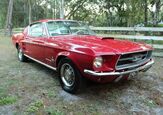VW Vehicles Should Be Tariff Exempt. BMW, Not So Much

Volkswagen expects its vehicles produced in North America to be exempt from the 25% tariffs the Trump administration has imposed on imports from Mexico and Canada, but other automakers, including BMW, may not be as fortunate.
Key Points
- Volkswagen expects its North American-built vehicles to be exempt from the 25% tariffs imposed by the Trump administration on imports from Mexico and Canada
- A temporary one-month reprieve has been grantedfor automakers that meet the United States-Mexico-Canada Agreement (USMCA) rules of origin
- BMW admitted its U.S. and Mexico-built vehicles do not meet the trade deal’s terms
Trump recently granted a one-month reprieve for automakers that comply with the United States-Mexico-Canada Agreement (USMCA) rules of origin. However, the specifics of which manufacturers qualify remain unclear. Originally, some outlets were reporting that only the big American three automakers were exempt, which could have created an awkward legal scenario.
A Volkswagen spokesperson confirmed to Reuters that its Mexican-built vehicles meet USMCA requirements, which should keep them exempt from tariffs. Volkswagen produces the Jetta, Taos, and the Tiguan, along with engines and components at its plants in Puebla and Silao. The Puebla facility is the largest automotive factory in Mexico and one of the largest vehicle plants owned by Volkswagen.
Mazda also weighed in, stating that its Mexico-built Mazda3 and CX-30 are currently not expected to face tariffs under the USMCA exemption but that the company is awaiting further clarification from the administration.
Among German automakers, Volkswagen appears to be the most exposed to the trade war, given that its Audi and Porsche brands lack U.S. manufacturing facilities. Many of VW's U.S. sales come from its Mexican production, and its upcoming battery plant in Canada was intended to supply the U.S. market. Audi, which manufactures the Q5 SUV in Mexico, has not yet confirmed whether it complies with USMCA requirements.
In contrast, BMWs built in the U.S. and Mexico do not comply with the trade deal’s terms, potentially subjecting them to significant duties. BMW imports about 10% of its U.S. vehicles from Mexico and has publicly opposed the tariffs, warning that they will increase costs for consumers and stifle innovation. BMW produces the 3 Series, 2 Series Coupé, and the M2 at its San Luis Potosí facility.
Become an AutoGuide insider. Get the latest from the automotive world first by subscribing to our newsletter here.

An experienced automotive storyteller and accomplished photographer known for engaging and insightful content. Michael also brings a wealth of technical knowledge—he was part of the Ford GT program at Multimatic, oversaw a fleet of Audi TCR race cars, ziptied Lamborghini Super Trofeo cars back together, been over the wall during the Rolex 24, and worked in the intense world of IndyCar.
More by Michael Accardi


































Comments
Join the conversation
I hope all european auto makers leave the USA forever. Let the Americans wallow in their behemoth wales they love to drive around in and let the rest of the world enjoy well made nimble automobiles that don't weigh 5000 lbs minimum.
I hope Canada starts importing more Volvo's, Daf's, Iveco's, Man's, Mercedes-Benz, Renault's, and Scania heavy trucks. Peterbilt's although good are not required.
The same with Farm equipment. Although John Deere and New Holland are big sellers in Europe, I think that will probably be changing soon thanks to Donalds ridiculous Tariffs.
The rest of the world really does not need the overpriced produce that America sells.